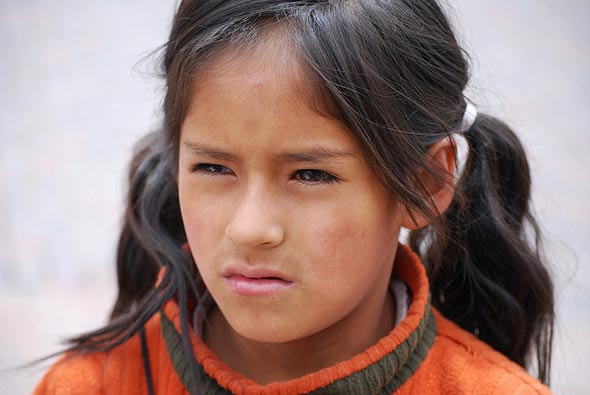 As the economic and social certainties of yester-century fade before our eyes and a new form of business starts to shape itself around ideas of responsibility and sustainability, a few countries come to the fore as nexuses of change happening right before our eyes(*).
As the economic and social certainties of yester-century fade before our eyes and a new form of business starts to shape itself around ideas of responsibility and sustainability, a few countries come to the fore as nexuses of change happening right before our eyes(*).
One of those places is Colombia.
For many years—decades—Colombia was a hotbed of insurgency and insurrection. Competing factions of communist rebels and wealthy drugs cartels sprang up across the country and kept the state in a permanent state of chaos. Sometimes the two forms of insurrection were confused, at other times it appeared outside governments funded the drugs cartels to keep the communist rebels at bay.
Life in Colombia has become, in comparison, a little easier over the past few years. Increased aid from the US and EU has led to a steadily diminishing drugs presence in the country and the Marxist rebels are a spent force with little popular support.
In the meantime the country’s President is on an increasingly successful charm offensive on the international stage, wooing international business to his shores and managing to get the US to ratify an outstanding free trade agreement between the two countries.
CSR is starting to creep up the country’s agenda.
The Nasa Action
Then in July 2012 something altogether unexpected happened. The Nasa tribe, whose land had been caught for decades in the crossfire between government and rebel troops, stormed and captured a hilltop fortress in the Cauca region. Most of the rebel soldiers agreed to leave peacefully, but when one tribal member was accidentally shot three adult rebels were sentenced to 30 lashes each before being released.
There’s no way the Nasa would have dared such an action if the rebels were as strong as they had been in previous decades; then again there would have been no reason for them to do it either if they had any faith in the state’s army and police force.
Throughout Latin America indigenous peoples are forcing their way onto the agenda, from the rejection of an international highway in Peru to a call from the the PanAmazonian social forum for Amazon tribes to unite across international borders to try and halt the invasion of their lands by the extractive industries.
For this reason it is instructive to try and see CSR from the other side of the fence: from the point of view of the people whose lands are being invaded and who, perhaps, don’t want to have their lives mechanised or “improved”. People who have been treated as inferior citizens on their own land for centuries and who are now totally fed up with it.
The continuing indigenous struggle
It’s very easy to forget the impact over 300 years of state sponsored racism has had on communities around the world, so here’s a quick recap of how it worked in Spanish colonies like Colombia:
- Spanish, top of the pile; they get all the plum positions in the government and church, full land rights and can conduct international trade;
- Castizos are next, those who have one indigenous grandparent and three Spanish grandparents; middle management in government and the church, severely limited land rights and no access to international trade; if a castizos married a Spaniard their children were generally considered Spanish;
- Moriscos, those with one black grandparent and three Spanish grandparents; no rights whatsoever;
- Mestizos, those considered 50/50 Spanish / indigenous; limited land rights only;
- Mulattos, those considered 50/50 Spanish / black; no rights;
- Indios, pure blooded indigenous; no rights;
- Negros, pure blooded black Africans; no rights.
This was dismantled officially with the cessation of direct Spanish rule by 1824, but in reality the racism continued for much longer and some would say to this day. It’s no wonder that western business interests are seen with hostility, as this quote from the PanAmazonian Social Forum shows:
A part of our struggle against the colonial exploitation is the demand for measures to protect traditional communities from biopiracy, and to seek the preservation, valorization and development of their ancestral knowledge. Likewise, we fight for just, democratic and sustainable cities according to the diverse realities of each region, taking into consideration the diversity of social actors who live in these cities. For the same reasons we also defend food sovereignty, household economy, community-based extractivism and agroecology.
Where CSR fits into this picture
This is a very long way round to introducing a thirty month collaborative project with the mouthful of a title Towards the Development of Standards and Mechanisms to protect Ethnic Peoples Affected by Extractives: Implementing Free, Prior and Informed consent and prior consultation in the context of the Colombian armed conflict.
From this a set of documents has been released, and one in particular caught my eye: Holding Extractive Companies to Account in Colombia: An evaluation of CSR instruments through the lens of Indigenous and Afro-Descendent Right.
The Afro-descent bit is important, not only because the negros were considered of lesser social rank than the indios, but because in Colombia today only 1 percent of the population is pure blood indigenous but 4 percent of the population are uniquely of African descent (while over 50 percent of the population consider themselves of mixed indigenous / European descent). Yet those Afro-Colombians are generally more ignored than the indigenous people.
I’m not going to knife and fork the entire report here and now .. this post’s already too long. However I thoroughly recommend settling down and reading it when you get a chance. It highlights good practice, and bad practice. And more than anything shows you why indigenous and ethnic minorities’ rights need to be treated responsibly by all corporations.
No scratch that … I mean “by all corporations”.
Because the thing about the extractive industries is that we all rely on them. So just as we all carry around a bit of Congolese blood in our pockets (it’s called your mobile phone) so it is we all usurp indigenous land rights every day .. anything from wood to petrol and plastics to copper and precious metals.
Until every business recognises that the responsibility for indigenous and ethnic rights rests on everyone’s shoulders, the claim that capitalist commerce is just racism reinvented will continue to ring true.
(*) Sorry. I must have swallowed a poetry pill this morning.
Picture Credit: Peruvian Child / Ivan Mlinaric / CC BY
Lucy is Editor at Corporate Eye

